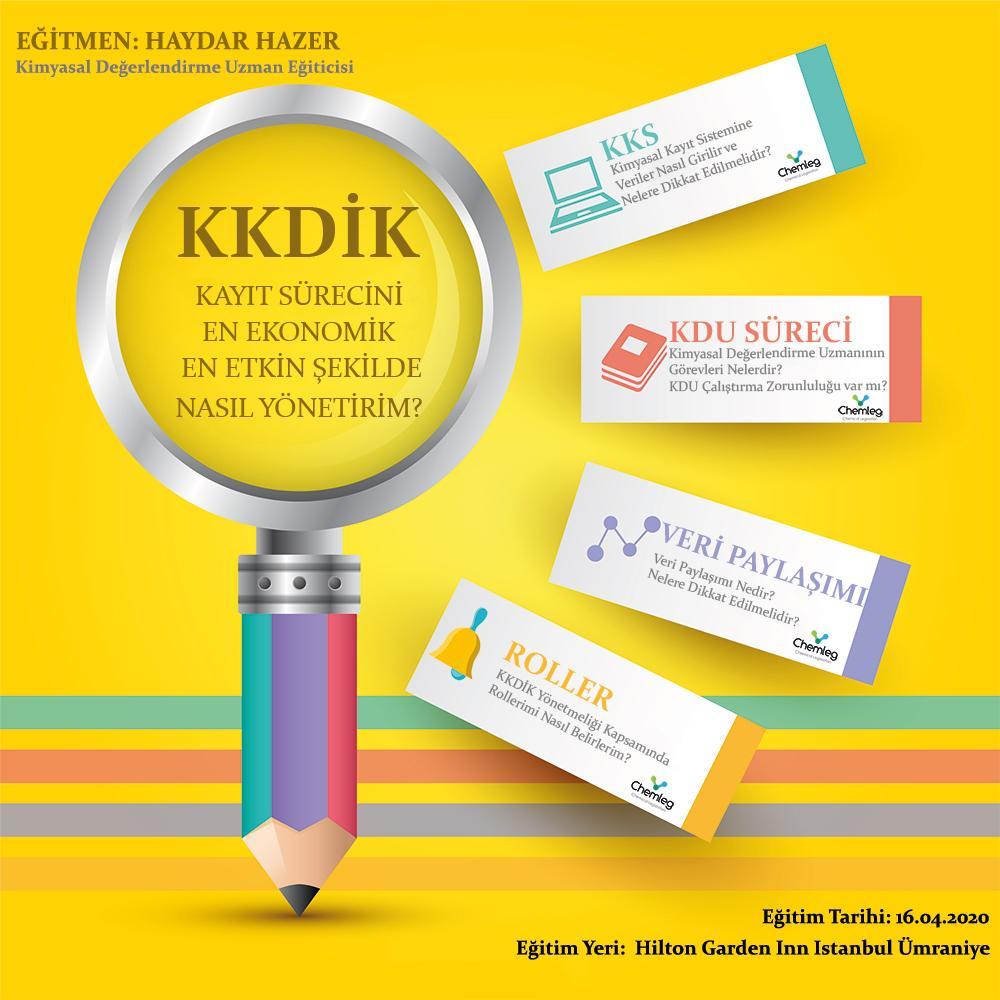
Training: How Can I Manage the KKDIK Registration Process Most Economically and Effectively?
Experienced Chemical Assessment Expert Haydar Hazer will provide training within Chemleg Consultancy.
"The Regulation on the Registration, Evaluation, Authorisation, and Restriction of Chemicals (REACH)" was published in the Official Gazette dated June 23, 2017, and numbered 30105. Some provisions entered into force on the date of publication, while some provisions will enter into force gradually. The registration process for substances manufactured or imported in their own right or in mixtures before December 31, 2023, will be carried out between December 31, 2020, and December 31, 2023.
Questions you will find answers to in the training:
1-How do I determine my roles under the KKDIK regulation?
2-Which actors have registration obligations and which actors have SVHC notification obligations?
3-What are my obligations?
4-I import substances or mixtures, do I have registration obligations?
5-I am a downstream user, how should I manage the registration process?
6-I import articles, how should I manage the registration process?
7-What are the duties of the chemical assessment expert?
8-Is there an obligation to employ a chemical assessment expert?
9-What are the duties of the third-party representative and who can appoint them?
10-What are the duties of the only representative and who can appoint them?
11-I pre-registered a substance, in which cases and when should I update my pre-registration?
12-How are Substance Information Exchange Forums (SIEFs) formed, what are their duties?
13-How is data quality assessed in registration and which data can be used?
14-What is data sharing, what should be considered?
15-What is a joint registration, is joint registration mandatory?
16-How is the lead registrant selected and what are their duties?
17-Which procedures are subject to fees?
18-What is Chemical Safety Assessment and Report (CSAR) and who prepares them?
19-In which cases do downstream users have to prepare a CSAR?
20-How is information flow managed in the supply chain, what should Be considered?
21-When and by whom is the eSDS (Extended Safety Data Sheet) prepared in Turkey?
22-How are data entered into the Turkish Chemicals Registration System (KKS) and what should be considered?
23-What are substances of very high concern (SVHCs) and how are they identified?
24-When and how Is the Annex XIV List of substances subject to authorization formed, what should be considered?
25-How should Annex XVII (Restrictions on the Manufacture, Placing on the Market, and Use of Certain Dangerous Substances, Preparations, and Articles) be read and what should be considered?
Training Date: April 16, 2020
Training Time: 09:30 - 17:00
Training Venue: Hilton Garden Inn Istanbul Umraniye
Refreshments: Lunch and Coffee & Tea and Sweet & Savory Snacks
Fee: 700 TL + VAT
Training Capacity: 25
For details: [email protected] or 0216 706 13 07
